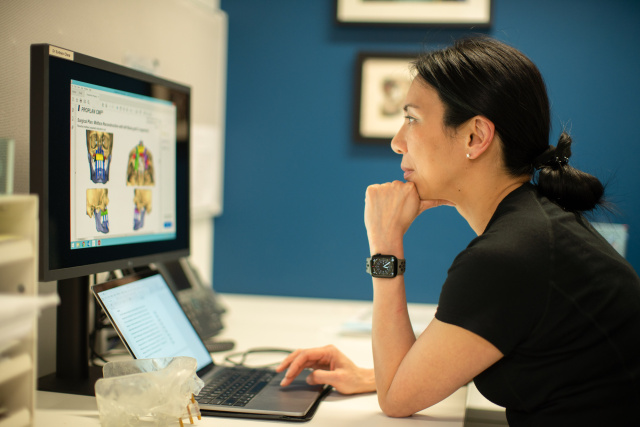Microsurgery procedures
Microsurgery is intricate surgery used in complex operations to reconstruct damaged skin, muscles and tissues. It is performed under a specialised operating microscope that magnifies structures up to twenty times, allowing very small structures such as blood vessels and nerves to be repaired.

When is microsurgery used?
Microsurgery is used to reconstruct wounds that cannot be closed by traditional, simpler methods such as suturing, skin grafts or local flaps.
During the procedure, also known as free flap or free tissue transfer, tissue is moved from one area of the body, to the reconstruction site to cover an open wound. Microsurgical techniques are used to reconnect blood vessels in the transferred tissue, allowing it to establish a new blood supply and fully integrate into its new location.
Dr Sydney Ch’ng has expertise as a microsurgeon in the perforator flap technique, the most sophisticated form of free flap surgery. This technique minimises the impact to tissue at the donor site, resulting in decreased pain and faster recovery after surgery.
Examples of tissues that may be transferred with microsurgical techniques are skin, muscle, fat, bone, and intestine.
Microsurgery Procedures with Dr Sydney Ch'ng
Dr Sydney Ch’ng also uses microsurgery techniques in:
- Nasal reconstruction following cancer surgery or trauma. Dr Sydney Ch'ng specialises in complex nasal reconstruction using part of the ear (helical rim free flap AKA ascending helical free flap) to reconstruct the side and tip of the nose.
- Facial nerve surgery for patients with facial palsy or those who have had facial nerve function affected by cancer, trauma or since birth.
- Complex reconstruction of the jaw. For these procedures, Dr Sydney Ch’ng uses virtual surgical planning (VSP) and collaborates with other head and neck and oromaxillofacial surgeons and biomedical engineers before surgery to design the necessary cutting gigs and titanium plates based on the patients' scans. VSP results in higher precision and less operating time for patients.
Facial microsurgery procedures
Dr Sydney Ch’ng uses microsurgical techniques to reconstruct wounds after cancer surgery (especially head and neck cancer surgery), and wounds caused by trauma or disease. It is important to appreciate that not all wounds require microsurgical reconstruction. Dr Sydney Ch’ng is trained in a wide range of surgical techniques, and will individualise the reconstructive surgical procedure based on a patient’s specific condition.
Following microsurgery, patients can expect to stay in hospital for between 1 and 14 days, depending on the complexity of the surgery. The free flap will be closely monitored to assess colour, temperature and blood flow. An ultrasound may also be used to check that the blood is flowing well in and out of the free flap.
Get in touch
If you’d like to know more about our head and neck, plastic or skin cancer surgical services, or if you have a question for Dr Ch’ng, we’d love to hear from you.
